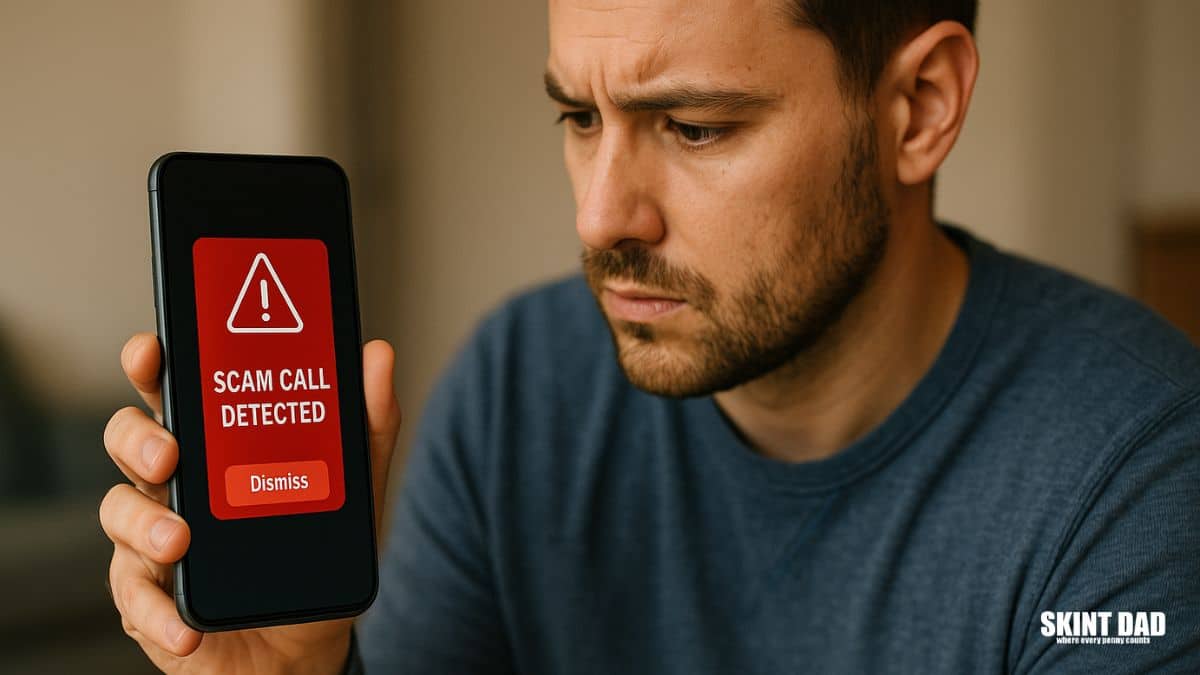From next year, scam calls pretending to come from trusted UK numbers should finally start drying up.

BT, Vodafone, Three, Virgin Media O2, Tesco Mobile, Sky and TalkTalk have all agreed to block foreign call centres from faking UK numbers.
The change is part of a major plan between the government and mobile companies to stop fraudsters tricking people into handing over money or personal details.
Get a free £10 bonus with Swagbucks
Earn a bit of extra money in your spare time with surveys, videos, and simple tasks you can do at home.
New users can get a £10 bonus when they sign up.
Get the £10 bonus
This practice, called number spoofing, lets criminals disguise their number so it looks like it’s coming from your bank or another familiar name.
The aim of the new system is to make it clear when a call is coming from abroad and to block dodgy calls before they even reach your phone.
How the changes will work
Over the next year, mobile networks will upgrade their systems to stop fake UK numbers being used by overseas scammers.
Artificial intelligence will also be used to spot and block suspicious calls and texts automatically.
Police will get new call-tracing tools to track down fraudsters more easily, and mobile firms have agreed to share more data to help identify which networks are letting scams slip through.
The plan also means faster help for victims. Phone companies have promised to give specialist support within two weeks to anyone affected by scams or fraud.
What it means for customers
This change should mean fewer fake calls claiming to be from your bank, energy provider or even the police.
It also covers text messages, which are increasingly used to trick people into clicking dodgy links or revealing personal information.
Networks such as Virgin Media O2 already block millions of scam texts each day, but the new system will use smarter AI to detect suspicious wording and sender details in real time.
It should help stop messages like “Your parcel is waiting for delivery” or “Suspicious activity on your account” before they ever reach your phone.
Why it matters
Fraud is now the most reported crime in the UK. It affects people of all ages and backgrounds and often causes more than just financial loss. It can leave people anxious and unsure who to trust.
Around 96 per cent of mobile users say they decide whether to answer a call based on the number displayed on their screen.
By removing the scammers’ ability to fake trusted numbers, this new system should stop millions of people from being tricked.
Extra ways to protect yourself
While this change will help, scammers are creative and will keep trying new tricks. You can protect yourself further by:
- Installing your network’s spam-call blocking app if it offers one.
- Setting your phone to silence unknown callers and letting voicemail pick them up.
- Using a password manager to keep accounts secure.
- Checking the Action Fraud or Citizens Advice websites for the latest scam alerts.
What to do if you think you’re being scammed
If you ever get a call that feels suspicious, hang up straight away. Don’t call the number back. Instead, look up the organisation’s real contact details online.
If you think a scammer has tried to trick you, report it:
- Call Action Fraud on 0300 123 2040, or visit the Action Fraud website.
- In Scotland, contact Advice Direct Scotland on 0808 164 6000.
- Forward scam texts to 7726 (it’s free), and send scam emails to report@phishing.gov.uk.
- You can also report fake websites to the National Cyber Security Centre.
If you believe your bank details have been compromised, call your bank immediately or use the 159 hotline to be connected securely.

Skint Dad says:
This is a big step forward. Scam calls can be frightening, especially for older or vulnerable people. Blocking spoofed numbers won’t stop every scam, but it’ll make life harder for criminals and easier for the rest of us.
Saved a few quid with our tips?
If Skint Dad has helped you spend less or feel more in control of your money, you can support the site with a small contribution.
- Side hustles and benefits in the UK: what you need to know - 8 January 2026
- Lloyds Bank switch deal: grab £250 plus Disney Plus for free - 6 January 2026
- Thinking of doing the Co-op freezer deal? Read this first - 6 January 2026
